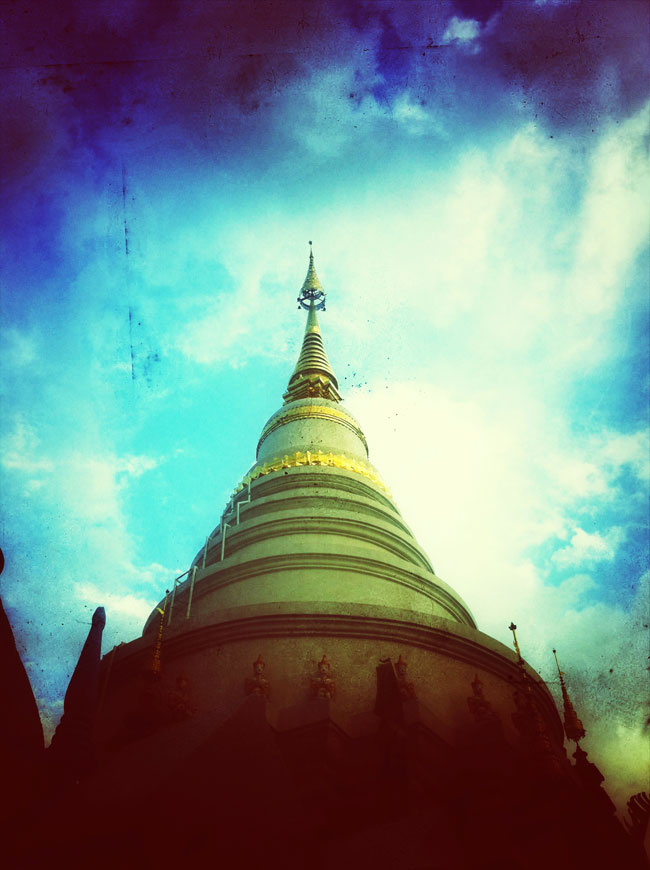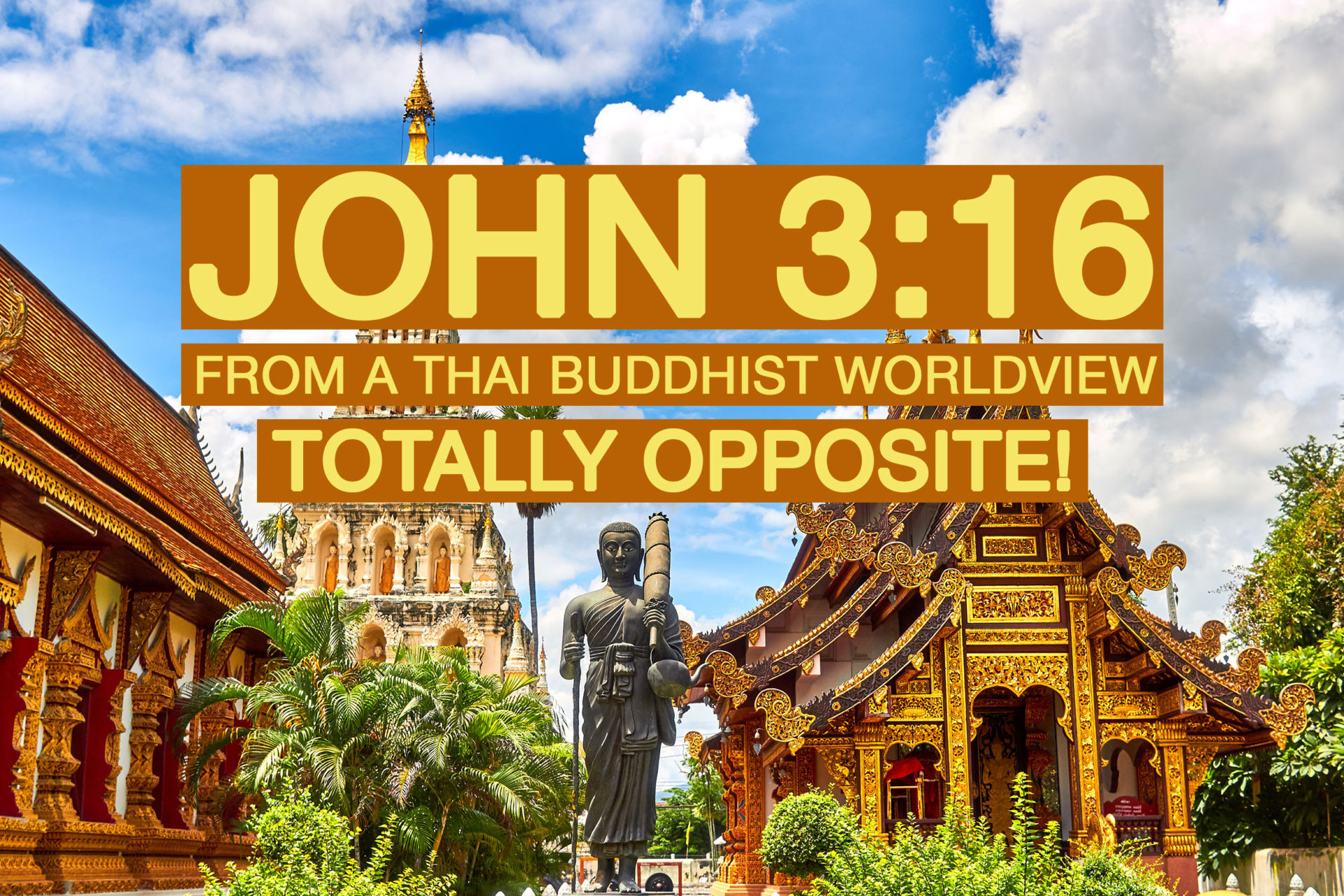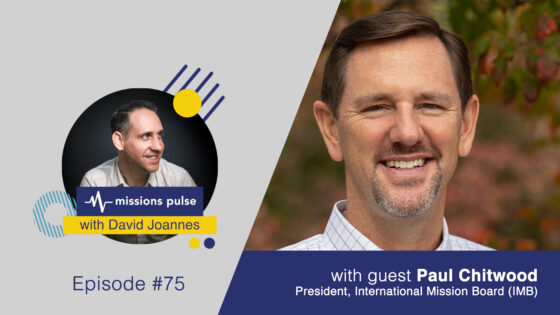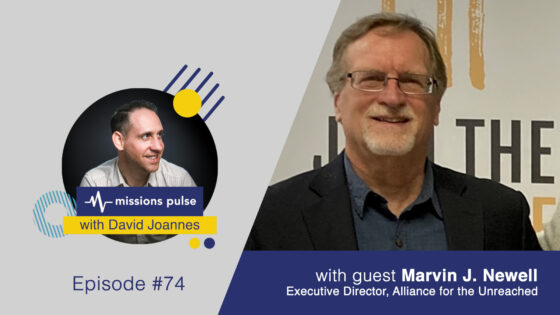A missionary friend of mine explains how a Thai person would interpret the most basic and clear verses to the western mind. There are many difficulties and misunderstandings to overcome in order for someone to simply understand the Gospel, much less believe it!
Here is the most famous verse in the Bible broken down through the viewpoint of a Buddhist.
“For God” – When one talks about God, the computer screen of Western Christian’s minds automatically bring up his description. God is all-powerful, all-knowing, Omni-present, full of love, compassion, gracious, merciful, holy, etc. But to the Thai Buddhist mind, when God is mentioned, there is nothing that comes up on the computer screen of their mind, because in Buddhism, there is no God. As chapter 2 of this dissertation stated, it is quite possible that Thai Buddhists would interpret the “God” concept in light of their worldview which would cause them to interpret the Christian’s God as either cruel or stupid.
“so loved the world” – Love implies attachment; you love something or someone. According to the Four Noble Truths, attachment to things causes sin. The Thai Buddhist religion teaches them to “detach” from everything in order to enter Nirvana. So “whoever” this God is, to the Thai, he is full of unholy passion, because he loves and therefore, is a “sinner”.
“that he gave his only begotten son,” – There are three problems associated with this phrase. First, there is the problem of dealing with the pre-existence of Jesus Christ. Second, the Thai Buddhist does not believe in killing anything, so whoever this God is, he evidently is so attached to the world that he is willing to kill his own son for it. Therefore, he is a great sinner and not someone to be honored. Third, Jesus died such a violent death, that their Buddhist mentality tells them that Jesus was also a terrible person in a previous life to suffer such a horrible death.
“that whosoever believeth in him” – The Thai Buddhist is taught from day one to depend only on himself. He can only gain merit for himself. So the concept of trusting or depending on someone else for their salvation is a foreign concept.
“should not perish” – The Thai person uses the statement “perishing from this world” when they speak about breaking the cycle of reincarnation and entering Nirvana. So, if one believes on Jesus Christ, then according to their worldview, they will never get an opportunity to go to heaven.
“but have everlasting life” – Thai people believe they already have everlasting life, being caught in the cycle of reincarnation. They’ve already had thousands of lives and are trying to escape “everlasting life”. So if one believes on Jesus Christ, then according to their worldview, they will be caught in the cycle of reincarnation forever.
The people at Aloha Ke Akua Ministries summed up how a Thai Buddhist would interpret John 3:16.
Therefore, to a person with a Thai Buddhist world-view, this scripture says that this cruel or stupid Western God lusts after the world so much that he commits a sin by sacrificing his only son so that we will be caught in the Wheel of suffering, death and rebirth forever and never go to heaven.
Therefore, to a person with a Thai Buddhist world-view, this scripture says that this cruel or stupid Western God lusts after the world so much that he commits a sin by sacrificing his only son so that we will be caught in the Wheel of suffering, death and rebirth forever and never go to heaven.

After hundreds of years of missionary presence and Christian ministry in Thailand, the country remains 95% Buddhist and less than 1% Christian.
According to Operation World, there are over 30,000 Buddhist temples and around 250,000 monks in Thailand.
So how do you reach a Thai Buddhist?
Every day, kuhn dta and kuhn yai (grandpa and grandma), our staunchly Buddhist Thai neighbors/landlords, come over to hold our 8 month old daughter. Pêe (aunt) joins us in the front yard. Thanks largely to our cute baby girl, we have all become quite close. Kuhn dta whistles for our daughter while khun yai dances and sings. All the while, our baby is enamored by the golden Buddha dangling from auntie’s necklace.
That’s missional living, isn’t it?
“Have you had a chance to share the gospel with them yet?” Someone recently asked me.
Had the chance to share the gospel? Yes, of course. It’s always there. I don’t believe in that chance magically emerging. We are called to create opportunities. [CLICK TO TWEET]
It’s not a question of whether or not they know we are Christians, because they do. For us, living missionally on a day in day out basis is the exciting aspect. It’s bringing them to Jesus. It’s letting them experience the presence of God through our lifestyle—not a silent one, but a consistent one. It’s community. It’s sharing meals with them. It’s creating relationships that are less surface and more the depth of their truest concerns.
I have a good friend here, a former Buddhist monk turned Christian…
Wait, what? Buddhist monk who now believes in Jesus? That statement alone proves that God can and will reach the supposedly impossible cases.
The question I am raising is how can we share the fullness of the good news while striving for cultural relevance? [CLICK TO TWEET] After all, clarity on the recipient side is monumental in the discipleship process.
Reaching the unreached and unengaged.
Creating life impact in communities.
Being relevant in cross cultural scenarios.
The how to’s are never easy. Plus, I’m not the type to provide a quick fix five step process to reaching people. I’d rather encourage creativity in your own intentional missional living. [CLICK TO TWEET]
My former Buddhist monk friend would agree with the man who says, “I’m a Thai Christian, and used to believe in Buddhism. I think the best way to reach Thai people with the gospel is to be a message that reflects God’s love. God is gracious and compassionate, and He loves the Thai so much. Let’s pray that he continues to give us opportunities to express his grace and love.”
This article was inspired by John 3:16 from a Thai Buddhist Worldview – Total Opposite! by Philip and Lori Bassham. I have simply added my thoughts to their already intriguing blog.



